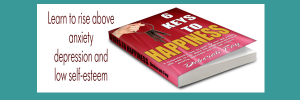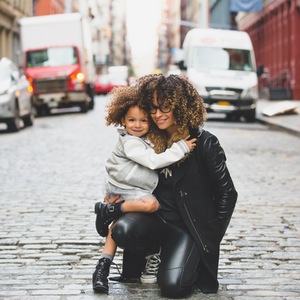Many of you have probably heard of Maslow’s Hierarchy of Needs and some of you might even be able to tell me what those needs are, and where you’re at in relation to them, but I am betting that many of you who live with anxiety and depression won’t understand how being raised in a home of co-dependents might lead to you not having your safety needs met as a child and how that contributes directly but sneakily to any anxiety or depression you might be experiencing today.
Today’s blog is particularly for women who experience seemingly unexplained bouts of depression, or high anxiety levels at the most inconvenient and seemingly unwarranted times, and if you are one of those women, I want to help you understand how co-dependency and the unconsciously inadequate parenting your probably received through your childhood might be causing you pain.
One of the more common traits of co-dependency is poor boundaries. Further to that, a child raised in a co-dependent environment might be actively discouraged from identifying their own needs, taking responsibility for those needs and asking for any help in meeting those needs. They are even likely to be encouraged to believe that their needs are less important than the needs of a parent or anyone in authority in their world.
So even if a child raised in this environment was to realise that they didn’t feel safe in a particular situation, they probably would not have the necessary skills to take positive action to change the situation and to ensure their own safety. Nor would they feel comfortable with asking for help in doing so. They would probably even be made to feel unworthy of having her basic needs met and because no one around is taking responsibility for themselves, they might even be made to feel responsible for anyone who makes them feel unsafe. This is where victim blaming starts.
The strong messages that are being relayed about worth, deservabiity and responsibility at such a young age are so screwed and the resultant programming makes that child extremely vulnerable to emotional and physical harm. When it comes to the female of the species, however, harm often comes in the form of sexual abuse of some sort at a young age, and with it a very clear message that there is no such thing as safety.
I encourage you to check out the #notokay twitter feed started by @kellyoxford after the release of the recordings of Donald Trump’s admission to sexual assault. You will soon see how “normal” it is for a woman to feel unsafe and how not alone you are if you fit that category.
Reading the many posts in the feed got me questioning for myself whether the millions of people experiencing anxiety and depression on a daily basis might actually be experiencing the direct result of feeling unsafe and might not know how to change that for themselves because they were never taught to acknowledge their needs, take responsibility for them or ask for help in filling them. In fact they were discouraged from doing that and told in many ways that they didn’t deserve to feel safe or to have their needs met. Who did they think they were?
So what now? What if you identify with much of this and you want to change things for yourself?
I have attempted to simplify some big issues in what I have written today and you might find yourself triggered and tapping into some pain from the past. You might feel inclined to push your feelings away, eat something, drink something, light up a cigarette, or worse.
Whatever it is you normally do to deal with your discomfort or pain, I encourage you to do the following:
- Take some time to talk to the child within
- Try journalling, write yourself a letter, meditate or talk to a counsellor
- Ask your inner child when she first didn’t feel safe and listen to her
- Help her to understand what happened with the adult perspective you now have and
- Ask her what she needs to feel safe now and honour her and yourself by meeting those needs
- Be gentle and compassionate with yourself because some of you have some tough stuff going on.
If I were a betting woman, I would bet that if you start communicating with yourself in this way and continue to develop the relationship that you were discouraged from developing when you were a child, you will come to know that you are there for you and you will come to trust in yourself and there will be far less opportunity for anxiety and depression to show up and steal your joy.
Until next time, take care <3
Important Links for creating a Juicy Life in 2016
If you want to know more about Holistic Counselling and Relationship Coaching follow this link:



I look forward to working with you and alongside you while you create your very own Juicy Life.
